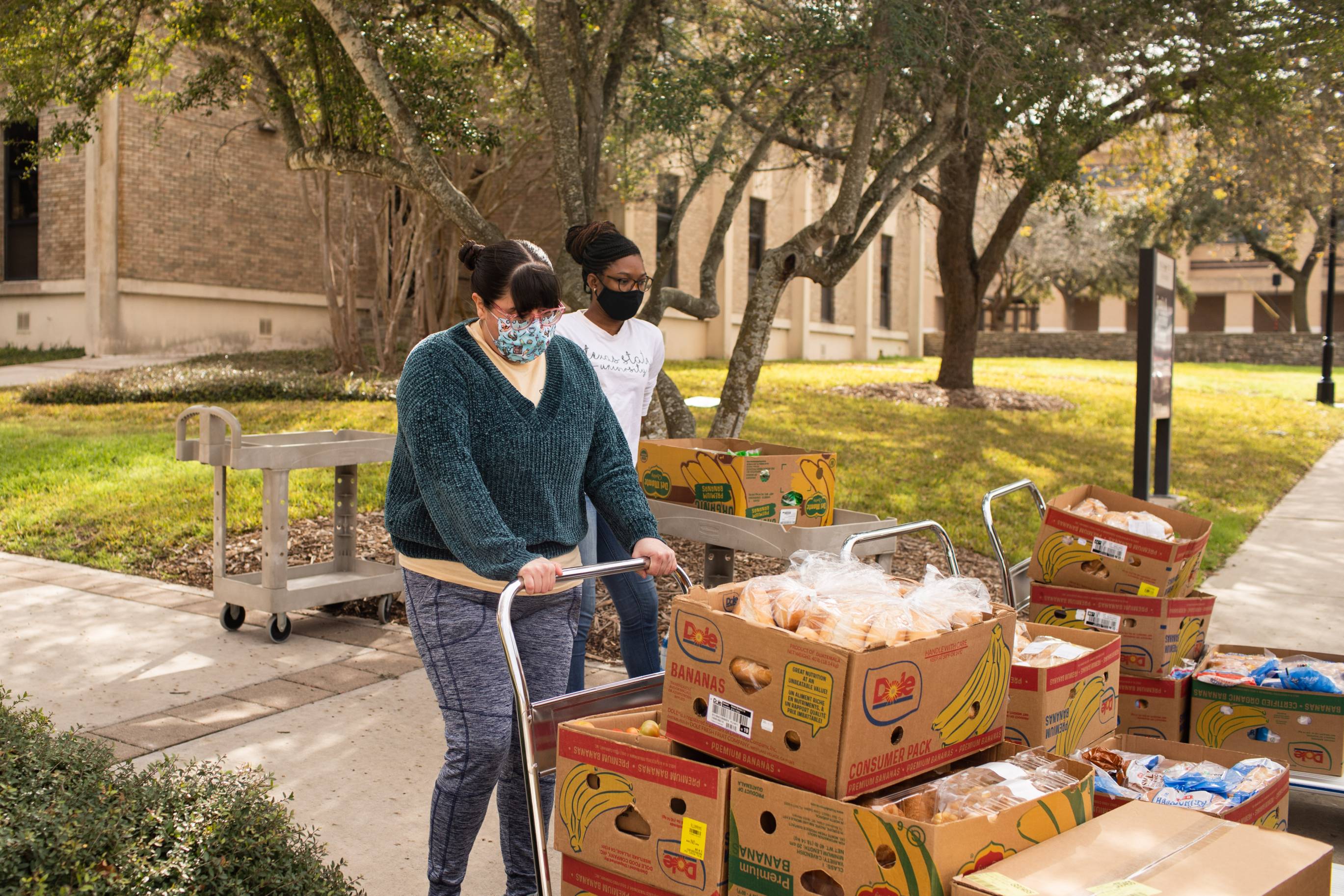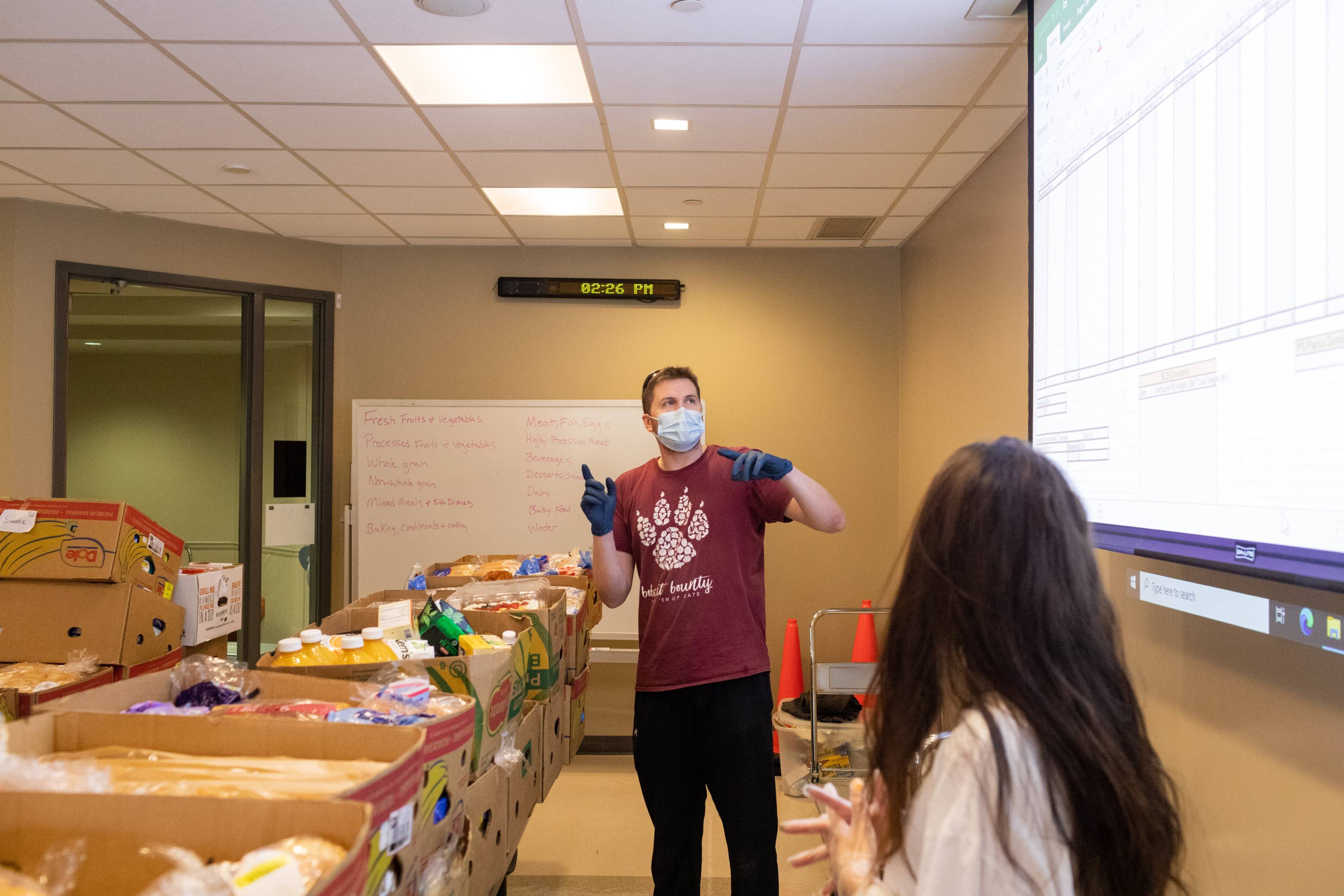The Food Security Learning Community (FSLC) at Texas State identifies problems of global, national, state, local, and institutional food security, and explores novel policy-, systems-, and environmental- solutions to those problems.
In the United States, an estimated 15.8 million households (12.7%) experience limited access to adequate amounts of healthful foods. For approximately 6.3 million of those households (5.0%), food access is low enough to cause portion size reduction and skipping meals. In Texas, these rates of food insecurity are 15.4% and 6.0%, respectively – significantly higher than the nation as a whole. (See the ERS Report from the USDA for more information.)
The unique financial pressures faced by college students (e.g. cost of tuition, limited earning potential while enrolled, and decreasing federal financial aid) mean that food insecurity is widespread on college campuses. Nationwide, rates of college student food insecurity may be as high as 48%, and a study conducted at Texas State in 2017 revealed that rates of food insecurity among Texas State University students may be as high as 28%. Food insecurity has the potential to negatively impact academic performance, as well as mental and physical health among students.


Led by Co-Directors Hannah Thornton and Lesli Biediger-Friedman, the FSLC engages the dietetic interns as well as other Texas State graduate and undergraduate students in the process of identifying the problem and designing an intervention.
The 2016-2017 FSLC identified campus food security as a priority. As a result of their quantitative and qualitative research assessing food security at Texas State, they recommended the creation of a food pantry on campus. The 2017-2018 FSLC implemented Bobcat Bounty, the first student-run, on-campus food pantry at Texas State, in the spring of 2018. Bobcat Bounty is currently being maintained and evaluated by the 2018 - 2019 FSLC.